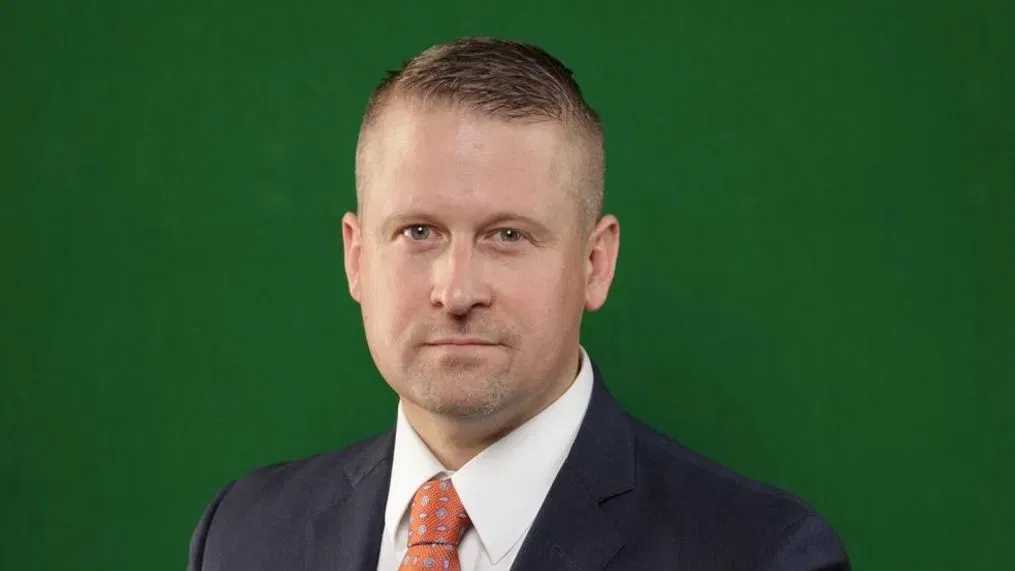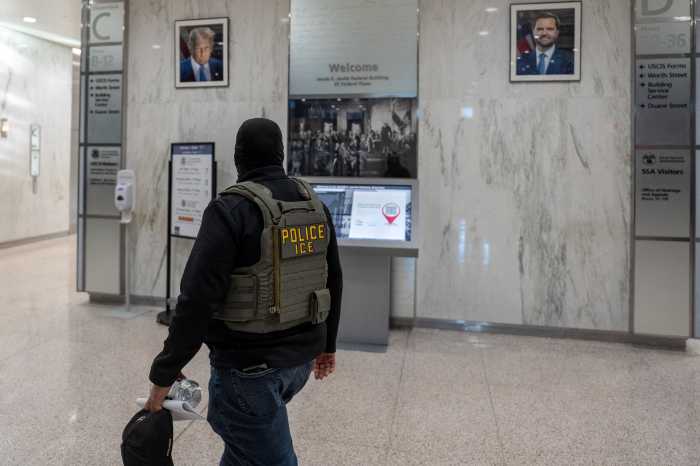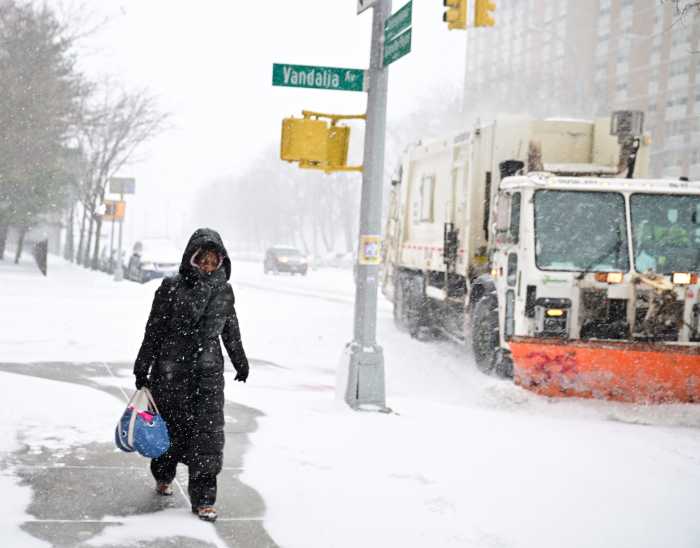A three-judge panel of the Houston-based US Court of Appeals for the Fifth Circuit ruled on Aug. 18 that US District Judge Matthew Kacsmaryk, a longtime opponent of LGBTQ rights, erred by refusing a preliminary injunction sought by an LGBTQ student group whose plans to present a drag show in a public university theater were quashed by university officials. Judge Kacsmaryk ruled that drag shows are not protected by the First Amendment. A majority of the three-judge 5th Circuit panel disagreed with him.
The case arose when Spectrum WT, a recognized student group at West Texas A&M University, which had presented a drag show on campus in the past without any opposition from the university, applied in January 2023 for permission to present a drag show in a university theater on March 31, as a fundraising event to support The Trevor Project, a non-profit organization addressing the issue of suicide among gay youth. They began planning for the show in November 2022, and university staff issued a “tentative confirmation” and actually began providing help to Spectrum WT in putting together flyers to promote the event.
Spectrum’s proposed show was supposed to be “PG-13,” mainly aimed at adults. Minors would not be allowed to attend unless accompanied by a parent or guardian. The performers were told not to engage in any “lewd conduct” or to use “profane language” in their acts. However, the emcee for the program was to be “Myss Myka,” a drag artist who had performed in a “highly sexual drag show” off campus in February.
On March 20, the university’s Vice President of Student Affairs, Dr. Christopher Thomas, informed Spectrum that the university was “canceling” the drag show, because the president of the university, Walter Wendler, believed that drag shows discriminate against women. Wendler then sent an email to the university community, titled “A Harmless Drag Show? No Such Thing.”
Wendler stated that while supporting The Trevor Project was “a noble cause,” a drag show does not “preserve a single thread of human dignity,” which comes from being “created in the image of God.” Wendler went on with a detailed description of his views about drag being demeaning to women and misogynistic, and he could “not support any show, performance or artistic expression which denigrates others.” He compared drag to blackface minstrel shows using racial stereotypes. He concluded that supporting The Trevor Project “is a good idea. My recommendation is to skip the show and send the dough.”
Spectrum sued President Wendler, Vice President Thomas, Chancellor John Sharp, and the members of the Board of Regents of the Texas A&M University System, claiming a violation of First Amendment rights and seeking temporary relief while the case was litigated. But they quickly realized they would not be able to get a court order in time to preserve their March 31 show date and arranged to hold the show off-campus. They still sought a preliminary injunction, however, to preserve their right to present a drag show on campus in the future.
Unfortunately, the university is within the geographic coverage of the federal Fort Worth courthouse of the Northern District of Texas, in which most of the cases are assigned to Judge Kacsmaryk, virtually guaranteeing that it could not be won at the trial level. And thus it proved, as Kacsmaryk ruled that plaintiffs were unlikely to win their case and thus denied the preliminary injunction. Kacsmaryk held that drag shows do not merit First Amendment protection.
The plaintiffs fared better with the Fifth Circuit panel, however, where Circuit Judge Leslie H. Southwick, an appointee of President George W. Bush, writing for himself and Senior Circuit Judge James L. Dennis, a Clinton appointee, voted to reverse Kacsmaryk and grant the preliminary injunction against Wendler and Thomas. They found that the plaintiffs lacked “standing” to sue Chancellor Sharp, who had nothing to do with the decision to cancel the show, and said that “enjoining Chancellor Sharp from helping enforce the drag show ban would in no way redress the plaintiffs’ injury.” The members of the Board of Regents were out of the picture on this appeal.
The key point in the court’s ruling was to refute Wendler’s contention, which was embraced by Judge Kacsmaryk, that the drag show would not have First Amendment protection as “speech.” Although the First Amendment literally applies to “speech,” the courts have long consider it to apply more broadly to expressive activity. While a theatrical performance, such as a drag show, uses words and songs and clearly involves speech, courts have recognized theatrical presentations as being a form of communication that should be entitled to the same First Amendment protection as pure speech. While the courts will not protect obscene speech or speech intended to provoke immediate unlawful conduct, they generally will find First Amendment protection even for speech that might be offensive or otherwise objectionable. Indeed, the Supreme Court ruled, in an opinion authored by Justice Antonin Scalia, that burning the American flag in protest is a form of speech protected by the First Amendment.
“A content-based restriction on First Amendment-protected activity in a designated public forum [such as a theater on a state university campus that is open to the public] is subject to strict scrutiny and must be narrowly tailored to serve a compelling state interest,” wrote Judge Southwick. “The restriction here describes impermissible expression not in terms of time, place, and manner, but in terms of content, i.e., a drag show. The ban abandons the neutrality of time, place and circumstance and becomes a concern about content.”
“Because theatrical performances plainly involve expressive conduct within the protection of the First Amendment, and because we find the plaintiffs’ drag show is protected expression, discrimination among such shows must pass strict scrutiny. President Wendler did not argue, either before the district court or on appeal, that restricting the intended drag show would survive strict scrutiny. Based on the record before us, the district court erred in concluding that the plaintiffs were not substantially likely to succeed on the merits of their First Amendment claim.”
Judge Ho sharply dissented, writing that “university officials have determined that drag shows are sexist, for the same reason that blackface performances are racist. And Supreme Court precedent demands that we respect university officials when it comes to regulating student activities to ensure an inclusive educational environment for all.”
His dissent relies heavily on the Supreme Court’s 2010 ruling in Christian Legal Society v. Martinez, in which the court upheld a state university’s denial of formal recognition to a student organization whose by-laws discriminated against LGBTQ people.
“I disagree with the Supreme Court’s decision in CLS,” he wrote, “but I’m bound to follow it. And I will not apply a different legal standard in this case, just because drag shows enjoy greater favor among cultural elites than the religious activities at issue in CLS.” A good part of the dissent is devoted to contesting the rationale for the CLS case, which Judge Ho contends violates basic constitutional principles. “But only the Supreme Court can overturn its own precedents,” he writes with apparent regret, “so until the Court itself overturns CLS, we’re bound to follow it.”
His conclusion belies the political grounding of his dissent: “It would turn the First Amendment upside down to give greater protection to drag shows than devotional acts,” he insists. “That would violate the Constitution under the guise of enforcing it. It would discriminate not only on the basis of viewpoint, but on the basis of religion as well in violation of not just the Free Speech Clause, but the Free Exercise Clause, too.”
The court directed that a preliminary injunction be issued barring Wendler and Thomas from denying Spectrum the right to hold a drag show on campus, but it is just a preliminary injunction, and this is not necessarily the end of the case. The Fifth Circuit is an extremely conservative bench. Of the 17 active members, 12 were appointed by Republican presidents, so it is possible — perhaps even likely — that a motion for rehearing “en banc” (by the full bench) could draw a majority of votes. And alternatively, Attorney General Paxton might call on the Supreme Court to reverse the panel decision.




































